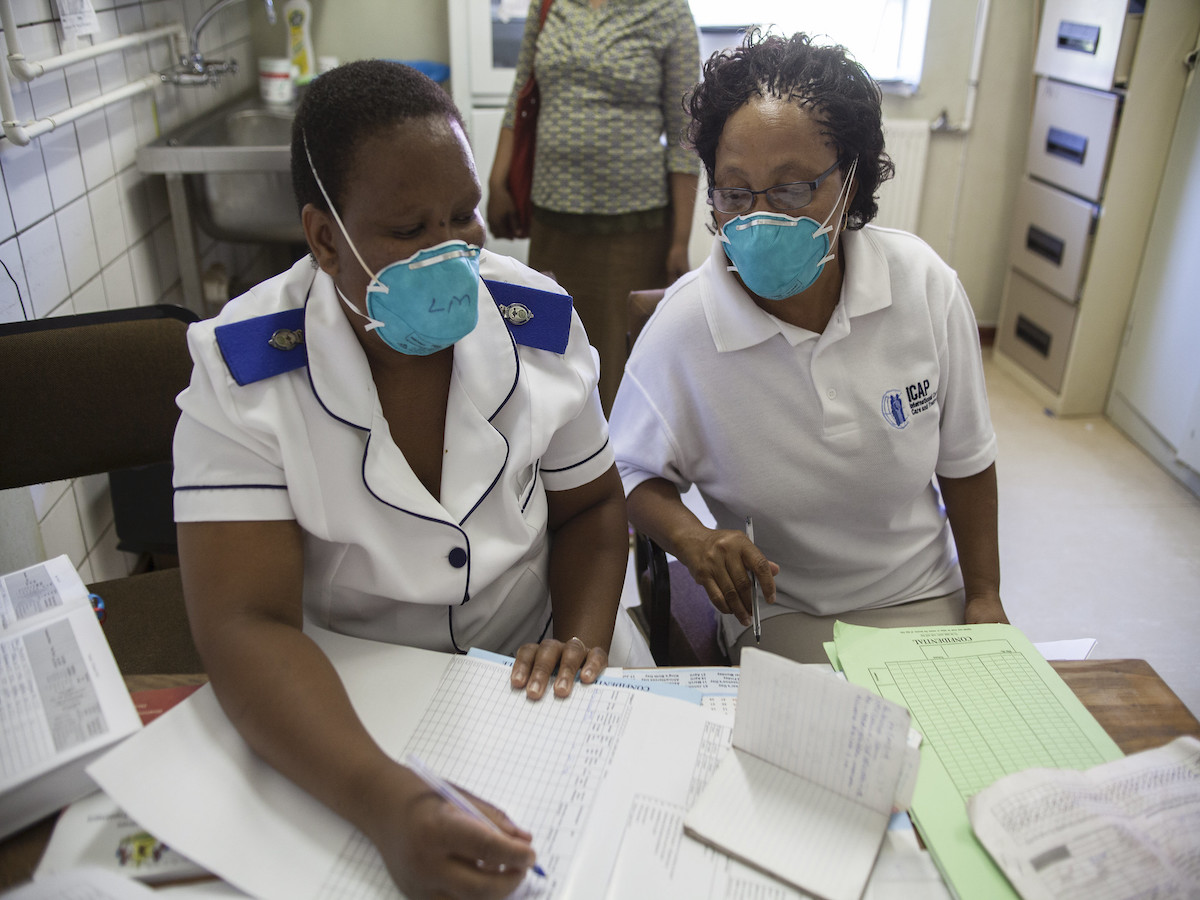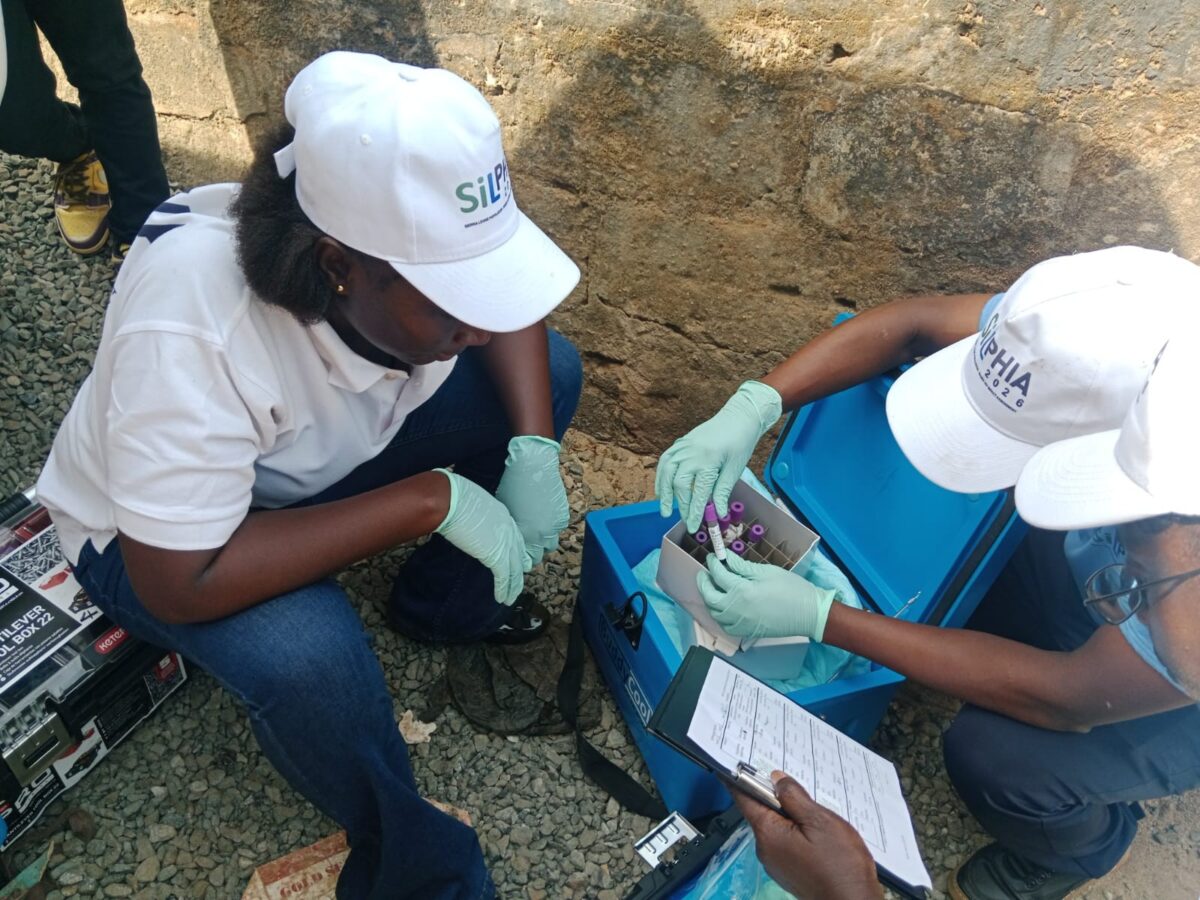As the world continues to grapple with the wide-reaching impact of the COVID-19 pandemic, the importance of strong and resilient health systems has come to the fore. With a series of new initiatives, ICAP is expanding its work in global health security, collaborating with ministries of health, educational institutions, and other partners to bolster the global response to public health threats during the COVID-19 pandemic, and beyond.
With awards from the U.S. Centers for Disease Control and Prevention (CDC), ICAP is supporting new global health security projects in the Democratic Republic of the Congo (DRC), Sierra Leone, and Kenya that will contribute to ongoing efforts to strengthen these countries’ capacities to prevent, detect, and respond quickly to infectious disease threats, with an eye to enhancing preparedness, responsiveness and resilience.
ICAP’s work on global health security in these three countries will be complemented by an innovative new fellowship designed to prepare the next generation of public health professionals to tackle the global health emergencies of the future.
“In our increasingly interconnected world, global health security is directly related to the strength and resilience of national public health systems,” said Wafaa El-Sadr, MD, MPH, MPA, founder and global director of ICAP. “Today, in the midst of the COVID-19 pandemic, it is abundantly clear that more must be done. ICAP’s collaboration with the US government and these three countries promises to provide significant bulwarks against emerging health threats. Those defenses will be enhanced by ICAP’s partnership with NewYork-Presbyterian develop a cadre of professionals who are prepared to respond the health crises of tomorrow.”
Supporting Global Health Security in Sierra Leone
ICAP began its partnership with Sierra Leone’s Ministry of Health and Sanitation in response to the largest Ebola outbreak in recorded history, which lasted from 2014 to 2016. Throughout this emergency, ICAP supported the national response to the outbreak, in collaboration with the CDC, by enhancing health system resiliency and responsiveness through quality improvement and human resource development. Since then, strengthening infection, prevention, and control (IPC) systems continues to be a critical component of ICAP’s current portfolio in the West African country.
Through the newly expanded global health security project in Sierra Leone, ICAP will assist the Ministry of Health to increase national capacity in several key areas including monitoring and evaluation, workforce development and strategy, emergency preparedness response. ICAP will also support the planning and management of an effective, evidence-based emergency response to small- and large-scale outbreaks. Additional collaborations will include the development of a national public health agency (NPHA) and the expansion of the country’s disease outbreak database.
“ICAP aims to implement global best practices and scale-up hard-won lessons learned over years of work in Sierra Leone to secure the lives of its people,” said Susan Michaels-Strasser, PhD, MPH, RN, FAAN, senior director, Human Resources for Health (HRH) Development at ICAP. “With this new funding, ICAP will continue its partnership with the Sierra Leone Ministry of Health to address gaps in the health system and achieve global health security targets.”
Implementing Quality IPC Interventions and Strengthening Laboratory Systems in DRC
Since it began its work in DRC in 2010, ICAP has focused on strengthening the human resource capacity of its national health sector and to improve HIV prevention, care, and treatment service provision, during times of major health crises. With new funding from the CDC, ICAP will expand its efforts to include the provision of technical support in global health security to the country’s ministry of health.
“The COVID-19 pandemic is adding more pressure to an already stressed national laboratory system dealing with a recurring Ebola outbreak,” said Maria Lahuerta, PhD, MPH, deputy director for Strategic Information at ICAP, and principal investigator for the project. “It is therefore crucial to support DRC to strengthen its provincial laboratories and the sample referral system as a critical element to effective response to infectious disease threats.”
In focused efforts to strengthen the country’s public health system, ICAP will support the Ebola and COVID-19 response in the country by enhancing health facility capacity to enhance epidemic prevention, detect early disease threats, and strengthening the Ministry of Health’s capacity to rapidly and effectively respond to infectious disease outbreaks. Specific interventions in the new project include efforts to strengthen DRC’s national laboratory system as well as the provision of technical support in the implementation of IPC measures across the country’s health system at the national, provincial, and facility levels.
Expanding Efforts and Strategies to Protect and Improve Public Health in Kenya
Building on nearly 14 years of close partnership with the Government of Kenya, ICAP will lead a multi-sectoral team of technical experts, ministry of health officials, and other stakeholders to further Kenya’s global health security priorities. In the first year of the new global health security project, ICAP will support ministry-led efforts to strengthen national IPC capacity, including improved outbreak response and health care-associated infection surveillance.
This new focus on global health security will complement ICAP’s longstanding collaborations with the Kenyan Ministry of Health, regional health facilities, and public health working groups to increase HIV treatment coverage and quality through innovative, evidence-driven approaches.
“Over the past 14 years, ICAP and the Government of Kenya have worked hand-in-hand to strengthen various elements of the national health system,” said Tiffany Harris, PhD, MS, director of Strategic Information at ICAP, and principal investigator for the project. “This new award enables ICAP to continue to support Kenya’s efforts to strengthen its response to emerging threats to public health.”
Training a New Generation of Health Professionals to Respond to Epidemics and Other Health Emergencies
The spread of the COVID-19 pandemic has highlighted the ongoing threat that emerging and re-emerging infectious diseases pose to public health around the world. In response to the need for health workers who are fully prepared to respond to crises of this magnitude, ICAP and the Dalio Center for Health Justice at NewYork-Presbyterian Hospital have partnered to launch a new fellowship to train U.S. health professionals to respond to epidemics and other health emergencies.
The year-long Responding to Epidemics and Crises in Health (REACH) fellowship will provide a select group of NewYork-Presbyterian staff across various health disciplines an opportunity to learn how to predict, manage, and lead robust responses to complex health emergencies.
The program will offer several approaches to bring the highest standard of education and training to the fellows. Training will include tailored coursework, lectures, and case studies on global health, epidemiology, social determinants of health, epidemic preparedness and response, and health communication. The year-long program will culminate with the presentation of capstone group projects, prepared by fellows under the supervision of leading public health experts.
“The COVID-19 pandemic has brought into a sharp focus the need to train a new generation of health professionals fully equipped to manage the complexities of sudden health crises, especially those involving emerging new infectious diseases,” said El-Sadr.
Looking Beyond COVID-19 to Pandemic Preparedness
COVID-19 has proven a wake-up call for global public health, showing the need for increased vigilance, education, and cooperation. Through continued collaboration with partners around the world and a commitment to training versatile health professionals, ICAP is rising to the moment, working toward a future where the security of the world’s health is deeply grounded in the enduring protection and wellbeing of every individual and community.
A major global health organization that has been improving public health in countries around the world for over 15 years, ICAP works to transform the health of populations through innovation, science, and global collaboration. Based at Columbia University in New York City, where it is part of the Mailman School of Public Health, ICAP has projects in more than 30 countries, working side-by-side with ministries of health and local partners to confront some of the world’s toughest health challenges. Through meaningful research, tailored technical assistance, effective training and education programs, and rigorous surveillance to measure and evaluate the impact of public health interventions, ICAP aims to realize a global vision of healthy people, empowered communities, and thriving societies. Online at icap.columbia.edu








